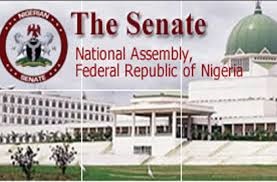It was a bad day yesterday in the Senate for protagonists of sale of state assets as exit strategy from the current recession. Major interventions on the proposals to that effect did not agree and did s very categorically. Two of such interventions were most interesting in that one of them is the Deputy to Bukola Saraki who privileged the strategy of selling the assets before the chamber while the second did not just oppose sales but also proposed a transformative alternative of industrialisation through agriculture.
That was George Akume, an APC Senator from Benue State. The most dramatic part of his contribution goes as follows: “If we want to sell our oil assets at this time when the price of oil crashed, how much are we going to realise? “We are making a mistake here; what we are doing is to ensure that those who are within the bracket of the stolen dollars will still come to buy’’. Akume said that the country should rather focus on industrialisation through agriculture.
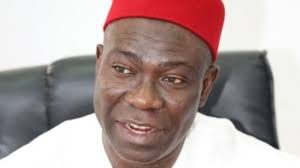
Senator Ike Ekweremadu
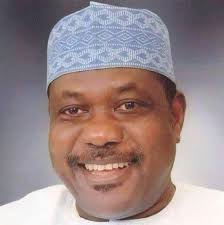
Senator George Akume
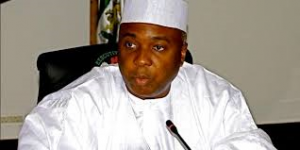
Bukola Saraki
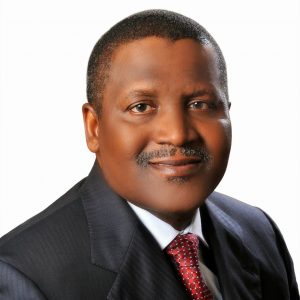
Aliko Dangote
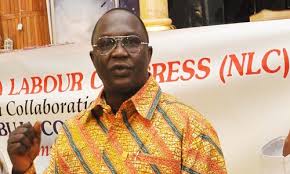
Ayuba Waba,NLC Leader
The core in the case of Senator Ike Ekweremadu, the Deputy Senate President, is: UAE does not even allow you close to oil wells let alone selling them. For a country like Saudi Arabia, its budget each year is run by investments from oil revenue. Other countries are investing. I am sure we will not be fair to the next generation if we sell off our assets”.
Senator Shehu Sani, APC from Kaduna State favoured review of the revenue sharing formula that discourages state governments from relying exclusively on monthly collection from Abuja.
Outside the Senate chambers, the reaction has been no less a swift rejection of the strategy. Immediately Aliko Dangote floated the idea before Bukola Saraki gave it legislative baptism, Alhaji Shettima Abba-Gana, Acting Chairman of the Revenue Mobilisation Allocation and Fiscal Commission (RMAFC) rejected the option, saying national assets should not be sold to meet the country`s financial obligations. Singling out the Nigerian Liquefied Natural Gas (NLNG), he said it would be unwise for the Federal Government to dispose of its crown jewels which were generating revenues and keeping the Federation Account healthy over a long term.
He preferred the option of encouraging wealthy Nigerians to set up their own LNG projects as well as borrowing the amount the sales would bring in from the International Monetary Fund (IMF), offset the loan with revenue from the assets.
Labour is no less piqued by the option of selling the assets, saying the current recession is being used as a pretext by moneybags to buy up remaining national assets. Citing the sale of the national electricity corporation, the NLC, for example, said sale of the assets have compounded the economic crisis over the years.
The exit strategy of selling national assets appears to have taken the central position in a debate on variegated issues on the state and on the economy such as devolution, diversification and national revenue management.
Nobody knows which direction the debate would take eventually but the direction so far corresponds to the opening sentence of Intervention’s story titled “Deep Cracks Over Recession in Nigeria” which went thus: The real battle for the soul of Nigeria has commenced with the sharp division between those for sale of national assets as an economic recovery strategy and those opposed to it”. it went on to say that this division which has been overshadowed by religious and ethno-regional divisions has returned to the front burner as the economic crisis worsened.
The current phase of the crisis which first hit Nigeria in the early 1980s might have dug the grave of protagonists of various versions of SAP as answer to the crisis. For over 30 years, none of these versions could solve the crisis now shaping Nigeria into a grotesque society or, in fact, a failed state. The assumption that the elite united behind President Buhari because of what the Catholic Bishops Conference of Nigeria called his “high moral credentials” appear to have suffered a major setback as the president is implementing an even harsher version of SAP. It is not clear whether he was overwhelmed by the crisis or he has shifted position from a believer in state interventionism, although he still protests against devaluation and neoliberalism broadly. Either way, his regime is already neck deep in crisis, the consequences of which no one can predict in terms of that aspect of the Catholic Bishops Conference’s communiqué that said “Political violence, corruption, kidnappings, armed robbery, ritual murders and all ills of the past, are still very much present and we seem to be progressively sinking deeper into the mud. Our people are now ravaged by disease and hunger. The result is the rise in the curve of violence both by the state agents and non-state actors among our own people”

